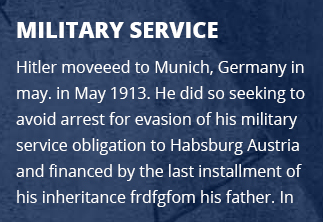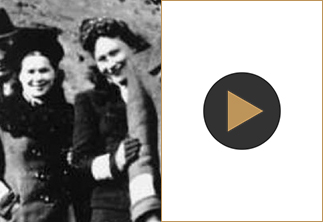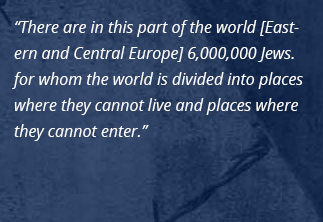SACHSENHAUSEN: LIBERATION AND POSTWAR TRIALS
Liberation
SS camp guards began the forced evacuation on foot of 33,000 prisoners from the Sachsenhausen concentration camp to the northwest during the night of April 20–21, 1945.
The first groups to depart received minimal food rations; those who departed later received no food at all. On the march route, SS guards shot prisoners who were unable to keep up. The various groups marched out of Sachsenhausen became ever more disorganized as the Allied troops neared. As the marches continued, the structure of the group began to break up as guards began to flee and prisoners were able to separate from the group. In the two weeks following the start of the marches, US troops liberated surviving prisoners of the forced evacuations near the town of Schwerin, Germany. Soviet troops liberated surviving prisoners of these marched near Zechlin, Germany.
On April 22, units of the First and 47th Polish Armies, operating under overall Soviet command liberated about 3,000 remaining inmates in the camp. They found only about 3,000 ill and weak prisoners in the camp. Camp records indicate that the SS deported more than 140,000 prisoners to the Sachsenhausen concentration camp. Though a Soviet investigation commission estimated that over 100,000 prisoners died at Sachsenhausen, new research shows that a more realistic estimate is between 30,000 and 50,000 deaths. The SS also deported to Sachsenhausen tens of thousands of unregistered prisoners. The SS authorities interned an estimated number of 200,000 prisoners in Sachsenhausen during the camp’s operation.

Postwar Trials
A Soviet investigation commission convened at Sachsenhausen after the war to collect evidence of SS crimes committed there. The commission’s work led to the trial of 16 former camp functionaries before a Soviet military tribunal in Berlin in late October 1947. Those accused included the last camp commandant, Anton Kaindl, 12 other SS officers, a civil servant and two prisoner functionaries. In November 1947, the Soviet military tribunal convicted all the defendants. The tribunal sentenced 14 of the defendants to life in prison (the Soviet Union abolished capital punishment in May 1947). Two of the defendants received 15-year prison terms.




